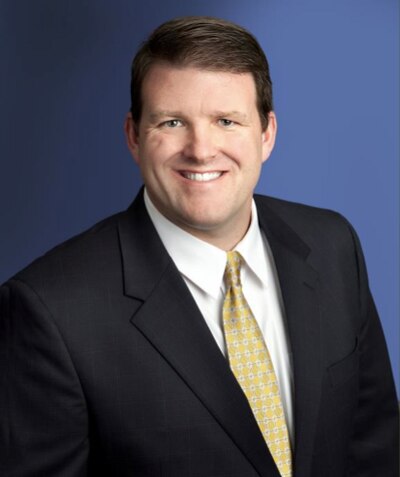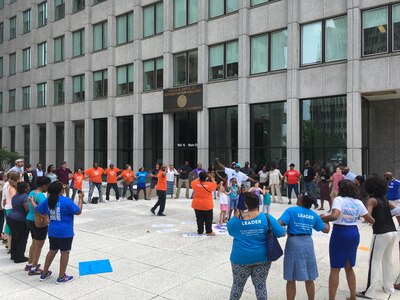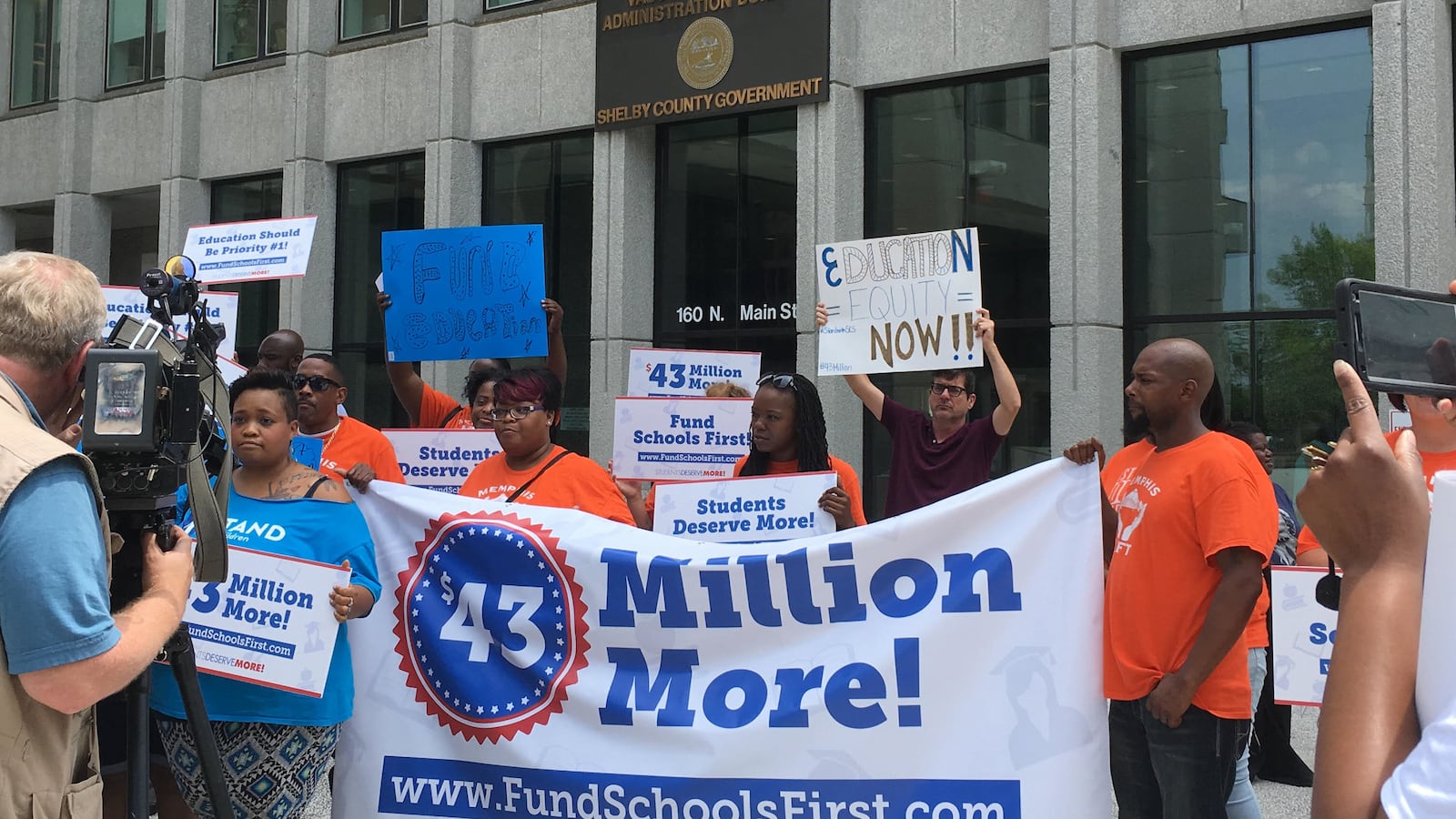After two hours of listening to Shelby County commissioners talk about school funding without resolution, Memphis parent Eligah Sledge said the panel is avoiding what needs to be done for schools.
“I thought it was a lot of runaround. They know what the problem is,” Sledge said Wednesday at an afternoon rally calling for more funding for public education. “I think they should give the school system what they need in order to function.”
Leaders for Shelby County Schools are asking for an additional $35 million in local funding to cover the district’s budget gap next school year after the school board approved $45 million in cuts last month.
However, County Mayor Mark Luttrell’s administration said Wednesday it is sticking by its proposed budget to allocate an extra $8.7 million for the county’s seven school districts.
Mike Swift, county director of administration and finance, told commissioners that Shelby County Schools’ enrollment is declining faster than its expenditures. He acknowledged that the district’s mostly poor students require more resources, “but the question is how much more?”
Commissioners moved Wednesday to delay their vote on the budget until June 20. The commission’s budget and finance committee is scheduled to make its budget recommendations on June 15.
Much of Wednesday’s discussion centered on the county’s $32 million wheel tax, which helps fund education but currently allocates half of the revenue to capital improvements and half to operations. The revenue is split among the county’s seven school districts based on enrollment.
If the allocation was changed so that Shelby County Schools could spend its entire portion on operations, the county’s largest school district would have about $12 million more to work with.

Superintendent Dorsey Hopson supports giving the district that flexibility, and Commissioner David Reaves, who chairs the commission’s education committee, expressed some openness to the idea. However, Reaves worried that the additional funding diminishes the district’s incentive to address its excess in facilities in the face of shrinking student enrollment.
“… Without a budget deficit, you’re not closing schools,” Reaves said.
Hopson, who has overseen the closure of schools every year since Shelby County Schools was created in a 2013 merger, said his administration will continue to assess the district’s facilities footprint.
“We’ve been closing schools for a long time,” Hopson said. “There’s an aggressive plan to close more schools to right-size the district.”
He warned that, if the commission withholds funds, “you put academic progress in peril.” On the table will be guidance counselors and parts of the Innovation Zone and the CLUE program for gifted students, as well as proposed salary increases for teachers.
Commissioner Eddie Jones said the facilities conversation is “off focus” and inappropriately shifts the commission’s focus from oversight to meddling in school board business.
“They are elected officials. They are capable of handling their own business,” Jones said.

As commissioners finished their budget discussions on schools, about 50 parents and advocates rallied outside the building in partnership with the Black Alliance for Educational Options, Stand for Children, Students First, National Coalition of 100 Black Women, 100 Black Men of Memphis and Black Lives Matter. The organizations have created an online petition in support of increased school funding.
Cardell Orrin, director of Stand for Children in Memphis, said he’s not surprised at the commission’s lack of consensus over Shelby County’s Schools’ budget request.
“I think the block is really on a couple of commissioners that don’t trust the district to do what they’ve said they’re going to do in terms of right-sizing the district and closing schools,” Orrin said, adding that he thinks the district is making good use of its limited resources.
Sledge, who also works as an advocate for Memphis Lift, said commissioners criticizing the district’s spending should visit Memphis schools.
“I don’t understand why they’re trying to push back and hold money, “ Sledge said. “We need teachers. We need good principals. We need resources.”

